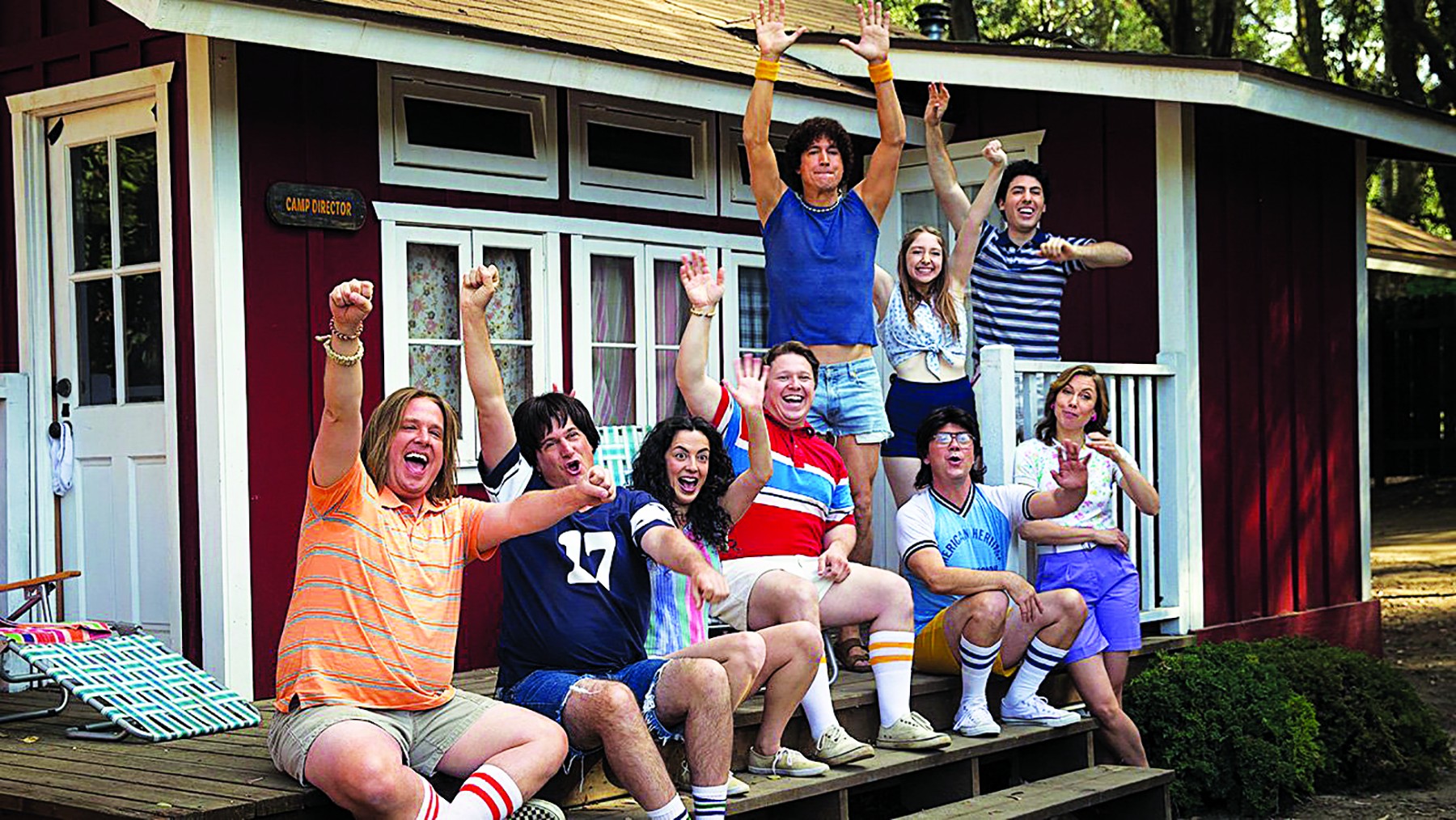When I first watched the 2001 film Wet Hot American Summer, I only responded to the unexpected pang in Michael Showalter’s romantic plot and the non-sequitur trip-to-town sequence. But my 25 subsequent viewings had a Lebowski-ian effect. Everything bloomed with dry confidence. Mundane teen movie staples turned first from deadpan parody into casual emotional violence, then into reassuring absurdity. The charm was in how the movie knew when and when not to try. There were “rake gags,” where a bit went on so long it became hilariously absurd. There were moments where a key prop, stunt, or exit was left out or drastically undercut, which called attention to the ridiculousness of the actors’ histrionics. (In the update, for example, a toxic waste spill is represented by a Day-Glo green puddle.) There was also the comedic freedom of unrestrained expression without consequence. Horniness, despair, and aggression were deployed for comedic effect and then forgotten a minute later. In addition to playing with tropes, writer Showalter and director David Wain were arguing that human emotions are mechanical, that they come along regardless of whether or not there is a prop or plot to excuse their expression. Teens (and the adults playing them) flail and scream because their conditioning tells them to, then rationalize a grandiose reason later.

Postmodern prequel with an all-star cast
Fourteen years later, as a Netflix series, Wet Hot is very successful at mimicking the beats and rhythms of the original, from the bright grass greens to the absurdist, Brechtian schtick. It is a prequel, set on the first day of the camp, whereas the first one took place on the last day. Showalter, now conspicuously overweight, bewigged, and 45, is playing an even younger teenager, whose lovelorn crushes are even more about entitlement and possession. He is specifically labeled “a nice guy” who can’t deal with the fact his quasi-girlfriend (Lake Bell) wants to sleep with a visiting Israeli (Wain), who has wonderful patter: “The tongue in the mouth, it can mean so many things … This is the true meaning of community, of kibbutz.”
The scope widens to include spies and undercover reporters, but it’s basically the same as other work by Showalter and Wain, like Wainy Days and Stella. The huge cast (Amy Poehler, Bradley Cooper, H. Jon Benjamin) is supported by ringers (Michael Cera, Jon Hamm). The core players from comedy troupe The State are true to form, if less fresh-faced. They still make familiar Hollywood devices feel dumb and unnatural, while grounding them in feelings of longing, rejection, and the sense of otherness.
On first viewing, it’s a little too dry. Comedy that comes from character more than unbridled absurdity is better. I enjoyed another recent online show involving idiots yelling, Other Space, more for this reason. Wet Hot American Summer: First Day Of Camp is a fine example of a postmodern prequel, but it’s still a prequel, with all the expectations and emotional baggage that entails.